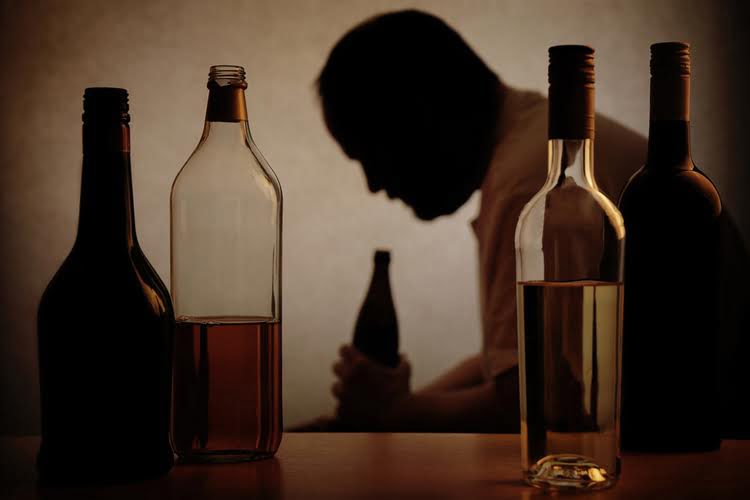Head Pain After Drinking? How to Avoid Alcohol Headaches
This might also lead to headaches, although not all studies agree on this point. We know Sober living house that alcohol is inflammatory and that people who drink often get headaches, but the direct relationship between these two is still being debated and researched. This section looks at some of the general causes of alcohol-induced headaches. In later sections of this article, we’ll look at why certain specific alcohols are more prone to cause post-drinking headaches. So, if quercetin causes headaches, are there red wines without it?
Mental Health Resources

Don’t feel embarrassed when talking to your doctor or headache specialist about your triggers—it will help them give you a proper diagnosis and start the best treatment plan for your symptoms. For more information on the https://www.incrediglobe.com/sober-living/can-an-alcoholic-ever-drink-again-the-risks-and-2/ various migraine triggers and how to manage them, visit the American Migraine Foundation resource library, or contact us directly. Headaches and migraines are both types of painful sensations in the head, but they have distinct characteristics and underlying causes.

Second, get some sleep.
Individuals gave consent to their anonymized data being collected and analyzed for research purposes by agreeing to the Curelator Inc. Terms and Conditions and Privacy Policy.27 The Biomedical Research Alliance of New York (BRANY) IRB granted full waiver from informed consent on 10 October 2019. At the time of the study the App was only available in English.
Alcohol and congener content
- The relation between tyramine and migraine has been studied most extensively.
- All authors have read and agreed to the published version of the manuscript..
- Identifying your specific food and drink triggers is a key part of any migraine prevention and treatment plan.
- BB, PN, MS1, MWP collected the data and prepared a manuscript.
However, research has demonstrated that all types of alcoholic beverages can trigger migraines. A study in the European Journal of Neurology found that while red wine was the most frequently reported trigger, other alcoholic drinks were not far behind. However, in other countries (France, Italy) white wine (in France also champagne) is viewed as the major culprit 5, 6.
Alternative migraine therapies can work alongside traditional treatments to reduce migraine attack frequency and lessen the impact of symptoms. Having a strong network of people who validate your experience and support you on the good days and bad is so valuable when you live with an invisible illness like migraine. If you’re interested in connecting with more people in the migraine community, we recommend joining our Facebook support group, Move Against Migraine. There, you will find a wonderful community of people who are ready to listen and lift each other up. It’s critical to have a support network of understanding people who can not only check in on you but also empathize with your experience. Then consider joining our Move Against Migraine support group on Facebook so you can connect with others who live with migraine.

Red wine is the most commonly named culprit, but any type of alcohol, including gin, can lead to a migraine. The best way to avoid migraine when you drink depends on your exact trigger. If migraine attacks occur when you drink, or with a particular type of alcoholic drink, you should avoid that specific trigger. Wine does not need to be ingested in excessive quantities to produce headache.
Hangover headaches are a specific kind of headache that comes as a result of drinking alcohol. This is worth mentioning because not all headaches result from alcoholic beverages. You think that hangover headaches only happen to people who drink a lot over the course of several hours. However, anyone who gets a headache after drinking a small amount of alcohol knows this isn’t the case.
- Our brains don’t appreciate this, and they often retaliate with a migraine.
- No differences between migraine and tension headache were reported 24, 26 (Table 1).
- Study participants reported whether they had consumed alcohol each day, and if so, how many alcoholic beverages they drank.
- The same participants were also the most frequent consumers of wine.
- Understanding how alcohol affects your migraine symptoms is crucial.
About this article
When you pour in alcohol, it’s like asking it to run on the wrong kind of fuel. It’ll work, sure, but the process creates a lot of stress and junk that leads directly to that dreaded head pain. This isn’t just one thing going wrong; it’s a whole chain reaction. Drinking alcohol can increase inflammation in the body, which may be why some people experience migraines when they drink.
The migraines and alcohol exact link between alcohol and migraine isn’t fully understood. It’s likely that several links exist and that different people respond differently to various features of alcohol. It’s also possible that other factors or combinations of factors can trigger migraine.
